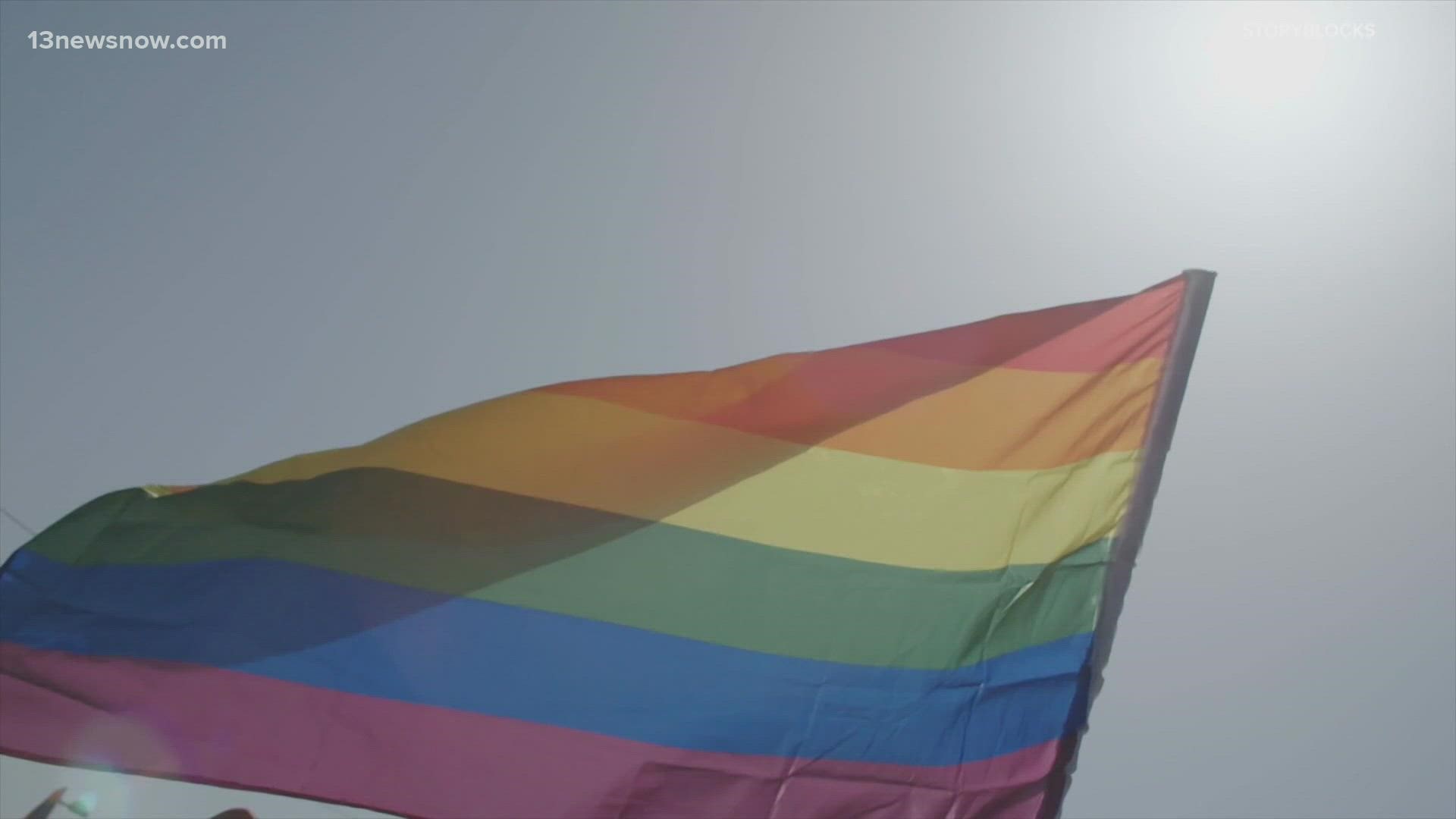VIRGINIA, USA — While the unprecedented leak from the Supreme Court stays in the national and local spotlight, legal experts reiterate that the documents merely offer a first draft opinion.
However, as 13News Now found out, the way the draft is written alarms some people here in Hampton Roads — including advocates of LGBTQ+ rights.
The landmark Roe v. Wade ruling established a woman's right to choose under the 14th Amendment's right to privacy.
“The 14th Amendment protects liberty, that’s the word. And the Supreme Court has held, for over 100 years, that there are certain rights that are fundamental and the government can’t infringe upon them, even if a majority of the people think they should be able to. One of those rights since 1973 has been a person’s right to terminate a pregnancy pre-viability," said Allison Larsen, a constitutional law professor at William & Mary.
Larsen emphasized that the Supreme Court leak, suggesting an overturn of Roe v. Wade, is simply a draft opinion by Justice Samuel Alito.
"Sometimes, what was initially the majority ceases to become the majority by the end of that deliberation process," she said.
But even the possibility of a Roe v. Wade reversal sends a bad signal for some people like Charles Kirtland who serves as board chair with the Norfolk-based LGBT Life Center.
"There are definitely some concerns there. It's not just an issue with abortion, it's an economic justice issue," said Kirtland. "It's a racial justice issue, health care, LGBTQ+, these are all people who should be concerned, because this freedom is intertwined in our movement for full liberation with equality. So, if you overturn this, what else is next?"
Like federal abortion rights, things such as interracial and same-sex marriage, as well as the right to contraceptives are covered under the 14th Amendment.
Larsen pointed out that, should the draft opinion in question hold as the final vote, it has language that specifically limits it to the context of abortion.
"But there's language in the draft opinion that does indicate a narrower way of protecting fundamental rights. That's why people are worried. That could indicate a future where these rights are hollowed out a little bit by, for example, accommodating people with religious objections to same-sex marriage," Larsen said.
When it comes to Loving v. Virginia — the 1967 ruling which made interracial marriage legal in the U.S. — Larsen said she does not anticipate any reversal on that down the line.
Some theorize that the leaked draft could bump up the timeline for the high court's final vote on abortion rights. Larsen mentioned that she does not anticipate that and instead expects the final decision handed down in late June, as planned.

